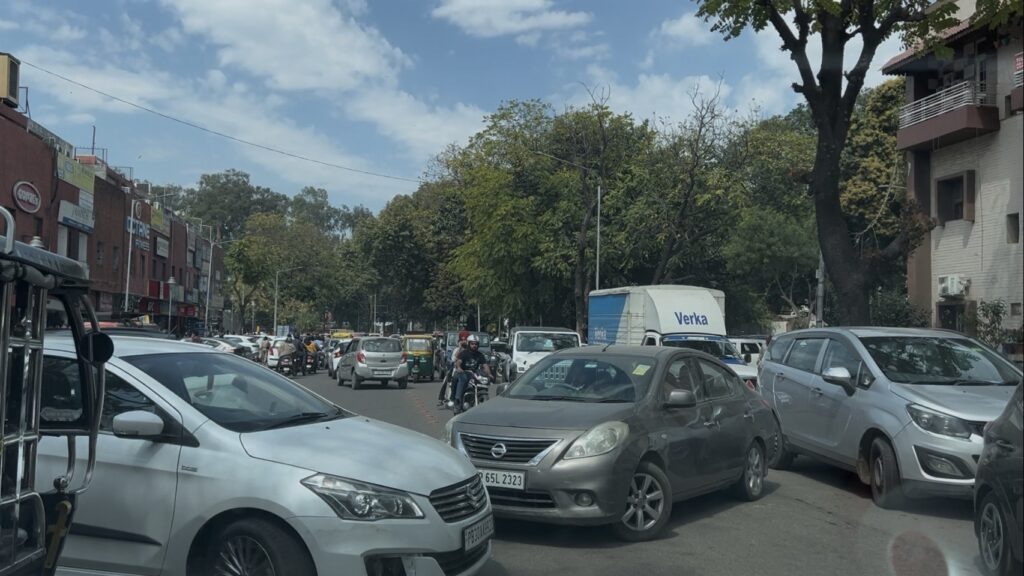
As I travel through India and admire the massive improvement in infrastructure, especially when it comes to roads, I can’t help marvelling at how the drivers here navigate the traffic.
I see myself as a good driver, solid and well trained, but I can’t dare to drive here. One attribute, or habit I should say, that stands out for me is a complete and utter lack of patience on part of those on the road. Every space on the road, no matter how small or narrow, is actively jousted for. A sheer lack of forbearance, I should say. Almost everyone is in a hurry, but I wonder if anyone is on time. The gridlock created by the disregard of rules and space leads to a constant chaos that is interesting and exciting to watch, but I cannot even start to imagine how much it tests one’s endurance.
And therein, I believe, lies a simple solution that is evading all – patiently staying in your lane and letting others go. I believe it is completely lost on folks that everyone will get to their destination faster if only everyone just shows a little bit of patience for others and to themselves.
It is a fact. No one gets anywhere if everyone is constantly fighting for the same space.
And isn’t that a perfect metaphor for life?
The irony of impatience slowing things down isn’t confined to traffic. It’s in how people push through conversations without truly listening, how they rush into decisions without giving them space to breathe, how they chase success so aggressively that they end up running in place. We’re wired to believe that speed equals progress, that whoever moves first wins. But more often than not, it’s the opposite.
The most effective leaders aren’t the ones who charge ahead recklessly but those who create space for others to move. The best decisions aren’t made in haste but in the stillness of reflection. The strongest relationships aren’t forged in urgency but in the patience of understanding. Life, like traffic, flows best when people stop fighting for every inch and recognize that progress is collective.
In high-functioning teams, workplaces, and even personal growth, the same principle applies. The teams that thrive aren’t necessarily the ones that work the fastest but the ones that work with the least friction. The people who achieve the most aren’t those constantly chasing the next milestone but those who understand the power of steady, intentional movement. Patience isn’t passive. It’s not about waiting idly. It’s about knowing when to move and when to let things unfold.
The drivers in India are not unskilled. Far from it. Their reflexes are sharper than mine could ever be. Their ability to anticipate movement is instinctive. But the efficiency is lost in the fight for every available gap, in the refusal to yield. And this is where the greatest paradox lies – everyone is in a hurry, but no one is getting anywhere faster.
What if the same is true for how we approach success? What if, instead of rushing to grab the next opportunity, we trusted that taking a step back could propel us forward? What if, instead of constantly pushing, we allowed things to come to us with time?
Ultimately, I believe, a little patience gets you there faster.